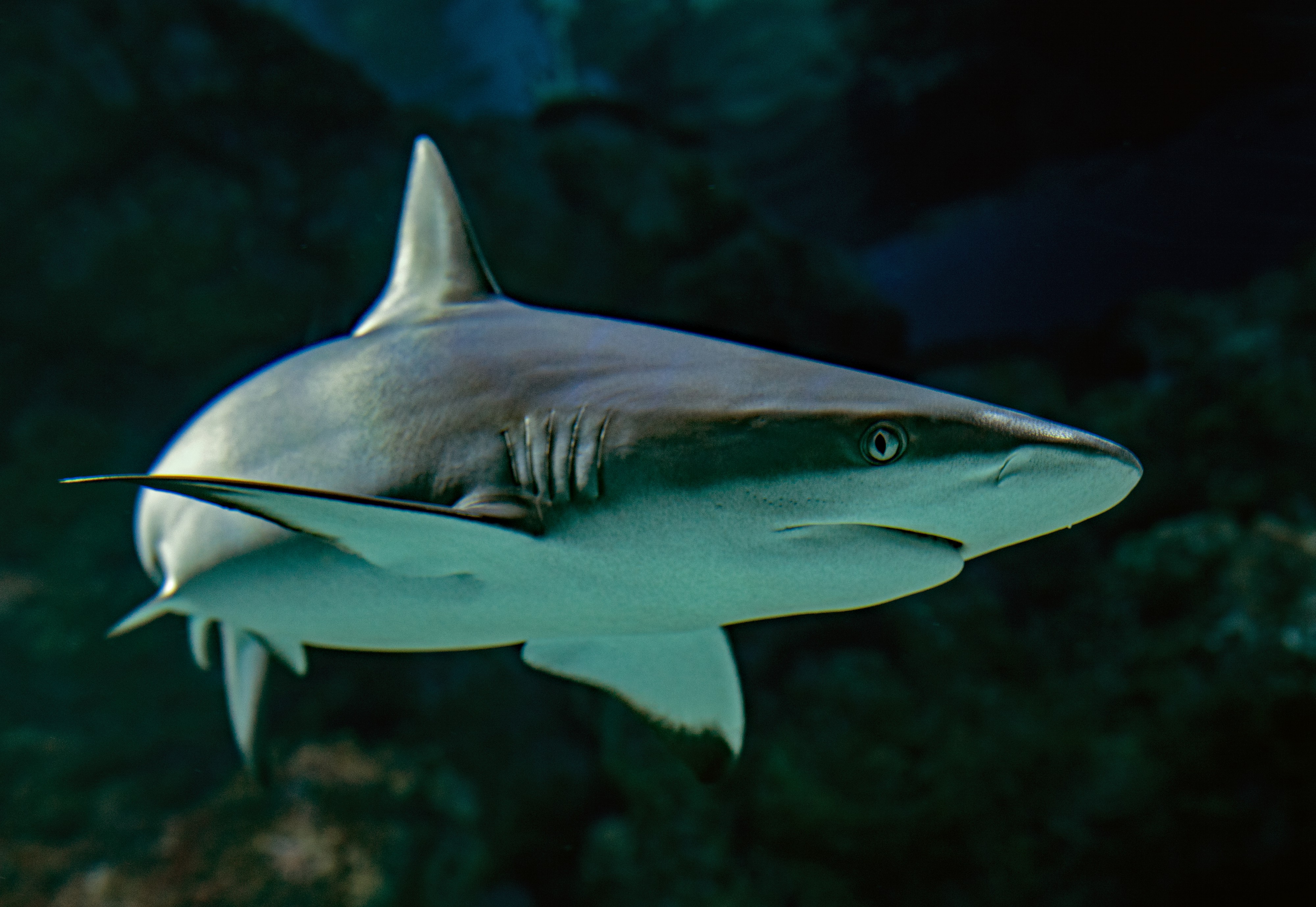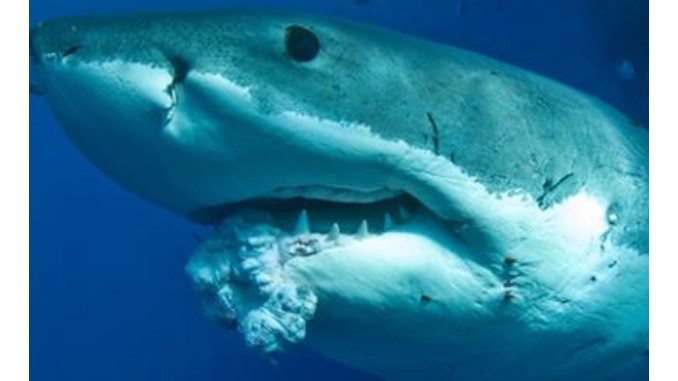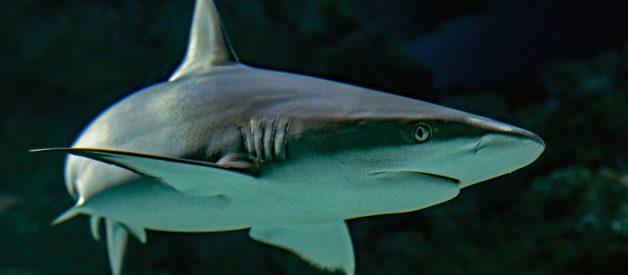The story of ?Sharks Don?t Get Cancer? ? and an update into the question itself
 Silent. Deadly. Hunter. But is he also free from ever needing chemotherapy? Photo by David Clode.
Silent. Deadly. Hunter. But is he also free from ever needing chemotherapy? Photo by David Clode.
Sharks are some scary, ancient creatures. They?ve existed in some form on Earth for more than 450 million years. This means that they existed more than a hundred million years before the dinosaurs first rose up ? and unlike those large lizards, they?re still swimming around in the oceans.
Something about these creatures, their aura of a merciless predator, has catapulted them into the public spotlight. From Jaws to Sharknado, we?re fascinated with the idea of them as predators ? and this has led to other questions, theories, and myths around them.
Do sharks need to swim constantly, or else they die? It depends, as some can circulate water, while others need to move to breathe. The biggest challenge is that, without a swim bladder, they?ll sink when they stop swimming.
Can sharks detect a single drop of blood in the ocean? Exaggeration ? they can smell blood at a concentration of as low as 1 part per million, but that?s more like ?a single drop of blood in a swimming pool.? Still impressive.
Sharks eat people, man! Rarely ? in the United States, there are about 1,000 drowning deaths for every shark attack (note: attack, not fatality!).
Sharks don?t get cancer!
Now, that?s an interesting one.
See, in 1992, a book by Dr. I. William Lane and Linda Comac came out with a bold title: ?Sharks Don?t Get Cancer.? That seems like a pretty definitive statement.
Sharks Don’t Get Cancer
It has not changed in over 400 million years. It never sleeps or rests. It is said to be “the perfect living machine”?
books.google.com
And just in case you haven?t been convinced, they put out a sequel/updated version 4 years later, with an appropriate name:
Sharks Still Don’t Get Cancer
In 1992, the bestselling Sharks Don’t Get Cancer–which explored whether shark cartilage could slow or even stop the?
books.google.com
Is this true? Are sharks somehow immune to cancer? And if that?s the case, how?
A Nibble About the Author
First, who?s this author, I. William Lane, who proclaims so boldly that sharks will never need to worry about checking themselves for lumps?
Dr. Lane was born in 1922, earned his PhD from Rutgers University in New Jersey, and was an avid supporter of ?natural medicine.? Along with the two books about sharks, he also wrote a couple other books, including ?The Skin Cancer Answer? and ?Immune Power: How to Use Your Immune System to Fight Disease ? from Cancer to AIDS?.
Already, I?m catching a couple of red flags here. There are treatments for AIDS, but they usually involve antiretrovirals, not the patient?s immune system.
Swimming a bit deeper into the meat of ?Sharks Don?t Get Cancer? reveals another disheartening fact. The book argues that shark cartilage (the supportive material sharks possess instead of bone, the same stuff found in your nose and ears) has anti-cancer properties and can be used as a treatment.
Dr. I. William Lane recommended a cartilage product for cancer sufferers, or those looking to avoid cancer. This treatment was produced by a company called Lane Labs, which happened to be owned by Dr. Lane?s son, Andrew Lane. This clear conflict of interest wasn?t disclosed, and the ?trials? that the book cites as evidence are not peer reviewed and have been reported to contain many flaws.
In June of 2000, the FTC stepped in. They ordered Andrew Lane?s company to stop selling the shark cartilage supplements, fined them $1 million for false advertising, and stated that the company?s product was not clinically proven, as they claimed in conjunction with Cartilage Consultants (the company run by I. William Lane).
Put it all together, and we don?t get a very credible author.
But still, what about his claim? Do sharks get cancer?
Cancer In Sharks Is Rare, But Present (Which Is Expected)
It turns out, sharks are not magically immune to cancer. They get it ? and we?ve known about this for more than eighty years before I. William Lane wrote his book.
The first tumor was found on a shark in 1908, and there have been dozens of other samples collected of sharks with cancerous tumors. These ocean predators aren?t immune to cancer.
 A cancerous tumor growing on the lower jaw of a shark. Sorry, William Lane. Source.
A cancerous tumor growing on the lower jaw of a shark. Sorry, William Lane. Source.
However, sharks don?t get cancer very often, which is still interesting. Scientists have studied this phenomenon, and there?s a couple different reasons.
First, sharks, as mentioned above, don?t have bones; their body structure instead comes from cartilage, the same stiff material that gives our nose and ears their shapes. Our bones serve as the factories where immune cells are created, but there?s a lag time as the immune cells mature before being released into the bloodstream.
For sharks, on the other hand, their immune cells, which are more primitive than ours, are created in the spleen and thymus. They?re released immediately into the bloodstream and mature while circulating, which may mean a faster reaction fo small, newly formed tumors.
Additionally, there?s been some research into how cartilage may slow the growth of tumors.
Cartilage doesn?t have blood vessels in it, which is achieved through the production of proteins to block blood vessel growth. There was research in the 1980s and 90s into using this extracted protein to reduce the growth of blood vessels that feed developing tumors.
However, this is very different from just eating cartilage in vain belief that any active ingredient will make its way to the tumor! If you had a bad sunburn, would you just eat a bunch of aloe? If you cut your finger, are you going to swallow a few Band-Aids?
Save the Sharks (From Humans, Not Cancer)
To this day, two myths persist.
The first myth is that sharks don?t get cancer ? they do.
The second, and far more dangerous, myth is that shark cartilage will help prevent, or cure, cancer in humans.
Many species of shark are endangered, in large part due to being harvested by China for ?alternative medicine? and by Japan to be an ingredient in shark fin soup. As many as 73 million sharks are killed each year ? a number with is doing significant damage to their population.
So far, clinical trials have failed to indicate that cartilage compounds, even if directly provided at the tumor site, have any benefit in reducing tumors.
Sharks may have a reduced incidence rate of developing cancer, but they can still get it. All the more reason for them to avoid suntans, smoking, or swimming too close to radioactive submarines.
 In their own way, as Katy Perry showed us, aren?t sharks adorable? Image created by Stefanie Shank.
In their own way, as Katy Perry showed us, aren?t sharks adorable? Image created by Stefanie Shank.
Really, fascinating stuff. If you want to get more scientific questions answered, and learn about other scientific myths, be sure to follow Sharing Science!


